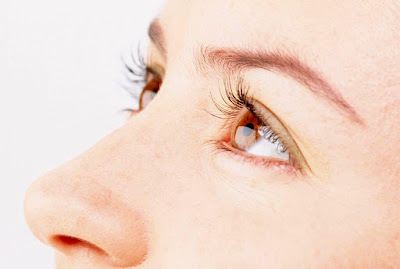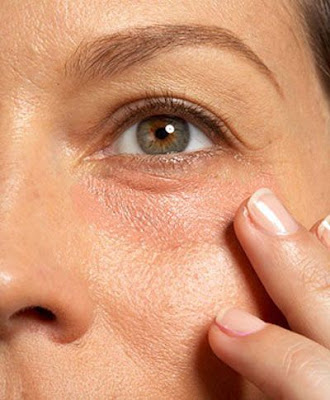Dry eyes, also known as dry eye syndrome or keratoconjunctivitis sicca, is a common eye condition that occurs when your eyes are unable to produce an adequate amount of tears or when the tears evaporate too quickly. This can result in uncomfortable symptoms such as irritation, redness, a burning sensation, and even blurred vision. While there are medical treatments available, many people seek natural home remedies to alleviate dry eye symptoms. In this comprehensive guide, we will explore various home remedies for dry eyes that can help you find relief and improve your overall eye health.
Understanding Dry Eyes:
Before delving into home remedies, it's essential to understand the causes and symptoms of dry eyes. Dry eye syndrome can be caused by various factors, including:
Environmental Factors: Dry and windy weather, air conditioning, and indoor heating can reduce the humidity in the air, leading to increased tear evaporation.
Aging: As we get older, tear production tends to decrease, making elderly individuals more susceptible to dry eyes.
Medical Conditions: Certain medical conditions, such as Sjögren's syndrome, rheumatoid arthritis, and diabetes, can contribute to dry eyes.
Medications: Some medications, including antihistamines, decongestants, and antidepressants, can reduce tear production.
Hormonal Changes: Hormonal fluctuations, such as those experienced during pregnancy and menopause, can affect tear quality and quantity.
Common Symptoms of Dry Eyes:
Symptoms of dry eyes can range from mild to severe and may include:
- A gritty or sandy feeling in the eyes
- Redness and irritation
- Excessive tearing (a reflex response to dryness)
- Blurred or fluctuating vision
- Light sensitivity
- Discomfort when wearing contact lenses
- Eye fatigue
- Warm Compress:
- Blink Regularly:
- Stay Hydrated:
- Omega-3 Fatty Acids:
- Artificial Tears:
- Humidifier:
- Eyelid Massage:
- Maintain a Healthy Diet:
- Reduce Screen Time:
- Environmental Modifications:
- Flaxseed Eye Compress:
- Aloe Vera:
- Cucumber Slices:
- Castor Oil:
- Chamomile Tea:
- Maintain Good Eyelid Hygiene:
- Avoid Smoke and Allergens:
- Eyeglasses:
- Palming Exercise:
While chronic dry eye syndrome may require professional medical treatment, there are several home remedies and lifestyle changes you can incorporate into your daily routine to relieve the discomfort associated with this condition.
Home Remedies for Dry Eyes:
Warm Compress:
Using a warm compress is a simple and effective home remedy for dry eyes. It helps to stimulate the production of natural oils in the eye, which are essential for maintaining a stable tear film. Here's how to do it:
a. Take a clean, lint-free cloth and soak it in warm water.
b. Wring out the excess water and place the warm compress over your closed eyelids for about 5-10 minutes.
c. Gently massage your eyelids to promote the release of natural oils.
Blink Regularly:
People often forget to blink when working on computers or reading, which can lead to an increase in dry eye symptoms. Make a conscious effort to blink regularly, as it helps spread a thin layer of tear film over the surface of your eyes.
Stay Hydrated:
Proper hydration is vital for overall health, including eye health. Drinking an adequate amount of water can help maintain the moisture balance in your eyes. Aim for at least 8-10 glasses of water a day to prevent dehydration.
Omega-3 Fatty Acids:
Omega-3 fatty acids, found in foods like fatty fish (salmon, mackerel, and sardines), flaxseeds, and walnuts, can help reduce inflammation and improve tear quality. Consider adding these foods to your diet or taking omega-3 supplements after consulting with a healthcare professional.
Artificial Tears:
Over-the-counter artificial tears, also known as lubricating eye drops, can provide temporary relief from dry eye symptoms. It's essential to choose preservative-free eye drops and use them as directed.
Humidifier:
Using a humidifier in your living space can add moisture to the air, which can be particularly beneficial during dry, winter months or in areas with low humidity.
Eyelid Massage:
Gentle eyelid massages can stimulate the meibomian glands in your eyelids, which secrete the oils that help keep your tears from evaporating too quickly.
To perform an eyelid massage
Wash your hands thoroughly. b. Use a clean finger to gently massage your closed eyelids in a circular motion.
Maintain a Healthy Diet:
A balanced diet rich in vitamins and minerals can support overall eye health. Incorporate foods high in vitamin A (carrots, sweet potatoes), vitamin C (citrus fruits, bell peppers), and vitamin E (almonds, sunflower seeds) to help protect your eyes from damage and dryness.
Extended screen time, whether it's from working on a computer or watching TV, can lead to decreased blinking and increased eye strain. Follow the 20-20-20 rule: take a 20-second break to look at something 20 feet away every 20 minutes of screen time.
Environmental Modifications:
Making small changes to your environment can significantly reduce dry eye symptoms. Consider wearing wrap-around sunglasses to protect your eyes from wind and dust, or using protective eyewear in windy or dusty conditions.
Flaxseed Eye Compress:
Flaxseed eye compresses can provide soothing relief for dry eyes. Here's how to make and use one:
a. Heat a small bag of flaxseeds in the microwave for about 20-30 seconds. b. Place the warm flaxseed bag over your closed eyelids for 5-10 minutes.
Aloe Vera:
Aloe vera has natural anti-inflammatory and soothing properties. To use aloe vera for dry eyes:
a. Mix equal parts of aloe vera gel and water. b. Use a clean dropper to apply a drop of the mixture to each eye. Blink several times to distribute the solution evenly.
Cucumber Slices:
Cucumber slices can provide a cooling and refreshing sensation to relieve dry eye discomfort. Simply chill cucumber slices in the refrigerator, then place them over your closed eyelids for 10-15 minutes.
Castor Oil:
Castor oil is a natural emollient that can help improve tear film stability. To use castor oil for dry eyes:
a. Use a clean dropper to apply a drop of castor oil to each eye before bedtime.
b. Blink several times to distribute the oil evenly.
Chamomile Tea:
Chamomile tea has anti-inflammatory properties that can help reduce eye irritation. To make a chamomile eye compress:
Steep a chamomile tea bag in hot water for a few minutes. b. Allow the tea bag to cool, then place it over your closed eyelids for 5-10 minutes.
Maintain Good Eyelid Hygiene:
Proper eyelid hygiene can prevent blockages in the meibomian glands. Use a mild, preservative-free eyelid cleanser or baby shampoo to clean your eyelids and eyelashes.
Avoid Smoke and Allergens:
Exposure to smoke and allergens can exacerbate dry eye symptoms. Avoid smoking and minimize exposure to environmental allergens to reduce irritation.
Eyeglasses:
Consider wearing eyeglasses instead of contact lenses, as they can shield your eyes from external irritants and help maintain moisture.
Palming Exercise:
Palming is a relaxation technique that can reduce eye strain and improve eye comfort:
Rub your hands together vigorously to generate heat.
FAQ (Frequently Asked Questions):
1. Are these home remedies suitable for all types of dry eye conditions?These home remedies are generally suitable for mild to moderate cases of dry eyes. However, if you have a severe or chronic condition, it's advisable to consult with an eye care professional for a more comprehensive treatment plan.
2. How long should I continue these home remedies before expecting improvement?
The time it takes to experience relief from dry eye symptoms may vary from person to person. Some individuals may notice improvement within a few days, while others may require a few weeks of consistent practice. Patience and persistence are key.
3. Can I use these home remedies in combination with prescribed medications?
Yes, in many cases, these home remedies can complement prescribed medications. However, it's essential to consult with your eye care professional to ensure that there are no contraindications or interactions between the remedies and any prescribed medications.
4. What lifestyle changes can help prevent dry eyes in the first place?
To prevent dry eyes, maintain good eye hygiene, stay well-hydrated, and follow a balanced diet rich in essential vitamins and minerals. Additionally, reduce prolonged screen time, protect your eyes from wind and dust, and avoid smoking and exposure to allergens.
5. Can dry eyes be a symptom of an underlying medical condition?
Yes, in some cases, dry eyes can be a symptom of underlying medical conditions such as Sjögren's syndrome, rheumatoid arthritis, or diabetes. If you suspect an underlying health issue, consult a healthcare professional for a proper diagnosis.
6. Are these remedies safe for children and the elderly?
Many of these remedies are generally safe for children and the elderly, but it's important to consider individual health conditions and allergies. Always consult with a healthcare professional before using these remedies on children or the elderly.7. Are there any potential side effects associated with these home remedies?
In most cases, these home remedies are safe and well-tolerated. However, some individuals may be sensitive or allergic to certain ingredients. If you experience any adverse reactions or discomfort, discontinue use and consult a healthcare professional.
8. Can I use multiple remedies simultaneously, or should I choose just one?
Combining several remedies can be effective for managing dry eyes. You can create a personalized management plan that includes multiple remedies to address various aspects of your dry eye symptoms. However, it's essential to be consistent in your approach to achieve the best results.Remember, while these home remedies can provide relief and support for dry eyes, they are not a substitute for professional medical advice and treatment. If you have persistent or severe dry eye symptoms, consult with an eye care specialist for a comprehensive evaluation and personalized treatment plan.
Conclusion:
Dry eyes can be a bothersome and uncomfortable condition, but there are numerous natural home remedies that can provide relief and improve your overall eye health. It's important to remember that while these remedies can be effective, they may not offer a complete solution for chronic or severe cases of dry eye syndrome. If your symptoms persist or worsen, it's crucial to consult with an eye care professional for a proper diagnosis and treatment plan.
Many of the home remedies discussed in this article focus on maintaining and enhancing tear quality and quantity. These methods include warm compresses, eyelid massages, dietary changes, and environmental modifications. It's essential to integrate these remedies into your daily routine and make them a part of your lifestyle to manage and prevent dry eye symptoms effectively.
Additionally, some people may benefit from combining several of these remedies to create a personalized dry eye management plan. It's important to experiment and find what works best for you, as individual responses to these remedies may vary.
Remember that proper eye care and regular eye exams are crucial for maintaining healthy eyes. By following these home remedies, you can take a proactive approach to managing your dry eyes and experiencing greater comfort and clarity of vision.
You may need to check this
What’s so special about it? Get rid of your glasses forever! Learn how to improve your eyesight naturally without surgery or invasive procedures!










Comments
Post a Comment
Please do not enter any spam link in the comment box.